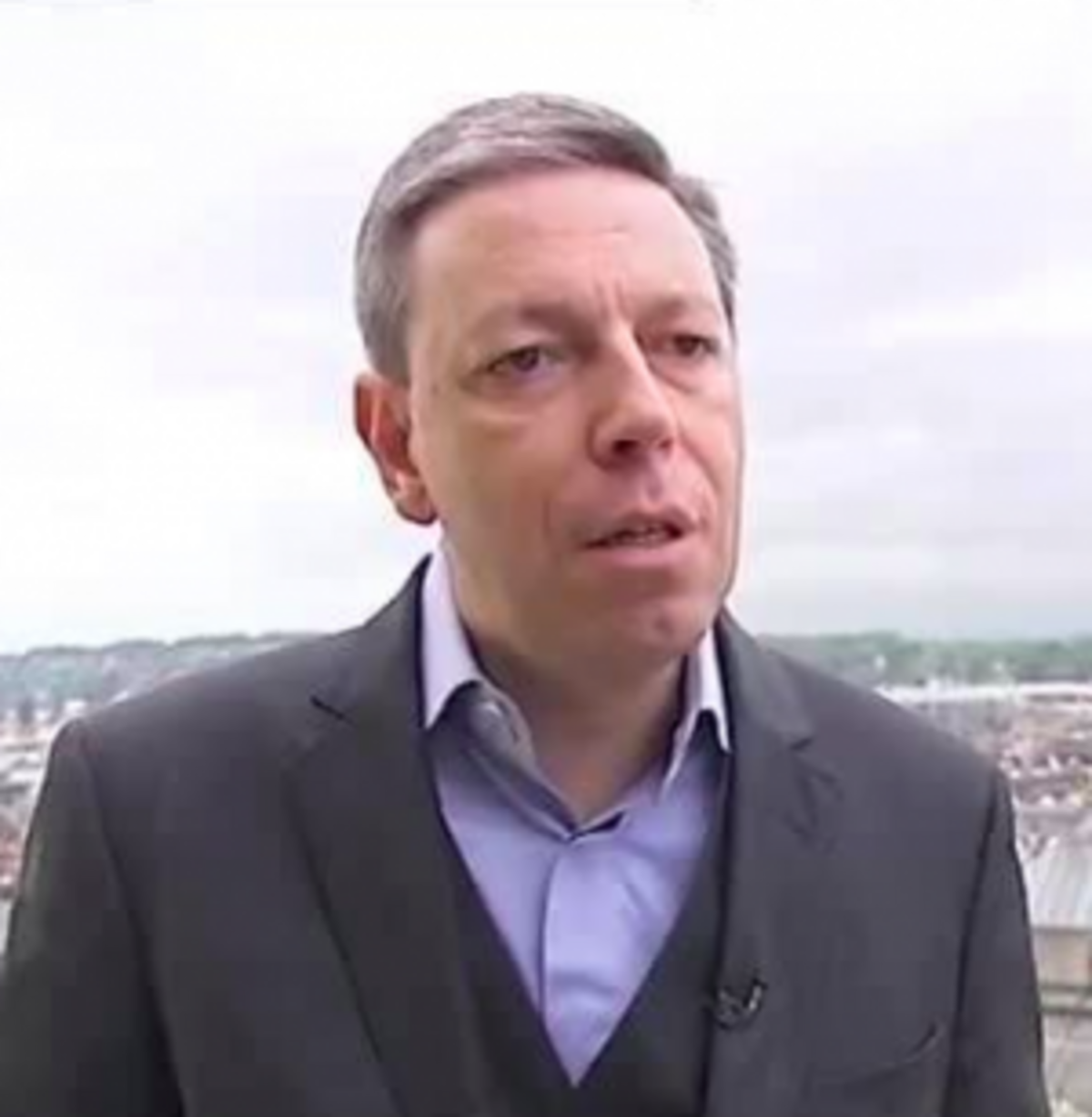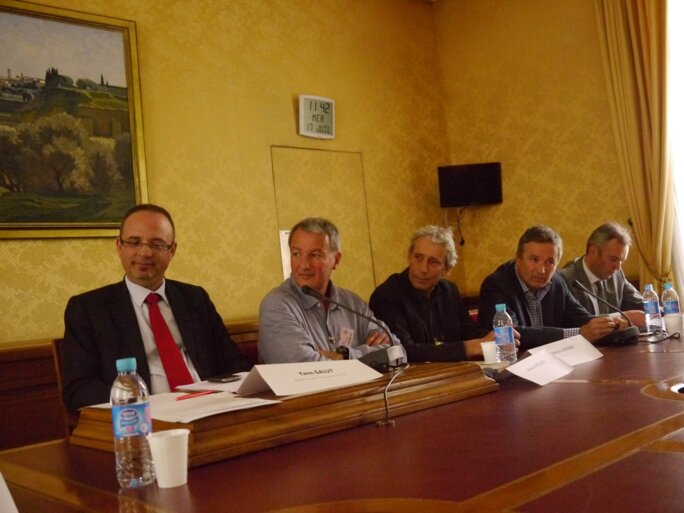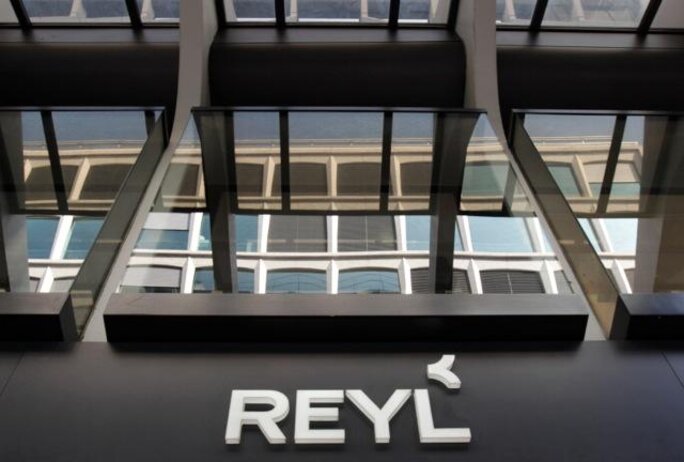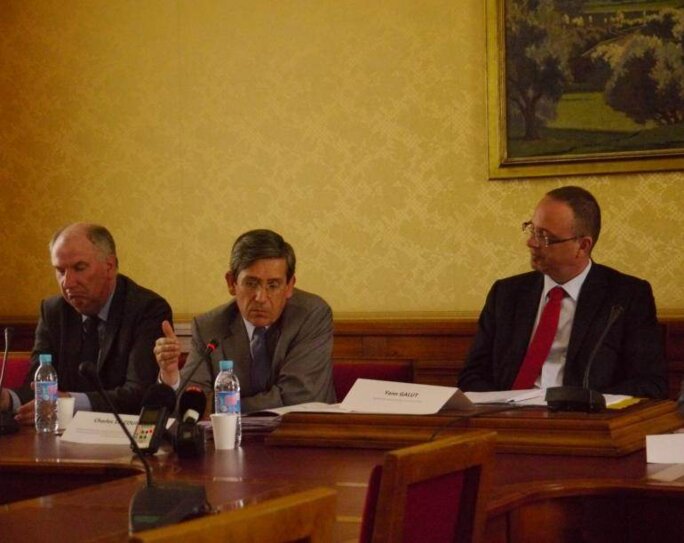A cross-party group of French parliamentarians have reacted with outrage over the arrest and imprisonment in Switzerland earlier this month of French banker-turned-whistleblower Pierre Condamin-Gerbier, a former executive of the Geneva-based Reyl bank who has become a key witness to investigations into tax evasion in France via Swiss financial institutions.
The 42 year-old investment banker’s arrest for breach of Swiss banking secrecy laws on July 5th was revealed in media reports last Friday and subsequently confirmed by the Swiss authorities.

In reaction to Condamin-Gerbier’s arrest, 20 lawmakers from both the lower and upper houses of parliament, the National Assembly and the Senate, have joined with Mediapart and investigative journalist Antoine Peillon in launching a call for the protection of whistleblowers and for the French government to help secure Condamin-Gerbier’s release from custody.
At a press conference at the National Assembly in Paris on Wednesday, the MPs and Senators warned of “extremely powerful forces” within France that were actively involved in covering up an organised scam of large-scale tax evasion via Swiss institutions, and released the text of a letter addressed to French Prime Minister Jean-Marc Ayrault in which they describe Condamin-Gerbier’s arrest as “a threatening message sent by Switzerland towards whistleblowers”.
Condamin-Gerbier, who worked for Swiss banking giant UBS before joining Reyl, recently revealed details of sophisticated tax evasion practices to a French judicial investigation into tax fraud and money laundering, and has appeared as a witness on the issue before two separate French parliamentary commissions of enquiry.

Enlargement : Illustration 2

News of Condamin-Gerbier’s arrest was first revealed last Friday by Swiss daily Le Tribune de Genève and was subsequently confirmed by the Swiss federal authorities. He has been placed in preventive detention, which the Swiss public prosecutor’s office described as “protective custody”, pending the results of a criminal investigation into his alleged breach of Swiss banking secrecy laws.
Mediapart has learnt that he is being held at the Genfergasse 22 prison near Berne, where his family is barred from visiting him.
The 42 year-old banker is a key witness in the Paris-based judicial investigation into former French budget minister Jérôme Cahuzac’s use over some 20 years of a secret Swiss bank account, the existence of which was first revealed by Mediapart last December and which Cahuzac finally confessed to holding in April.
Condamin-Gerbier was arrested shortly after he had returned to Switzerland from Paris where he had testified on July 3rd before the ongoing French parliamentary commission of enquiry into the Cahuzac scandal. The chairman of that commission, centrist Member of Parliament Charles de Courson, was one of the 20 parliamentarians who on Wednesday called on Prime Minister Ayrault to seek Condamin-Gerbier’s release from custody.

Enlargement : Illustration 3

Earlier this year, Condamin-Gerbier, who moved to Switzerland in 2004, gave several statements detailing tax evasion practices to the investigation into Cahuzac led by Paris-based Judges Renaud Van Ruymbeke and Roger Le Loire.
Between 2006 and 2010 he was a director of Geneva-based bank Reyl & Cie, which managed Cahuzac’s secret funds. Condamin-Gerbier provided the magistrates with details of the bank’s alleged involvement in helping a number of wealthy French individuals, as well as Cahuzac, to set up tax-dodging accounts abroad via sophisticated financial structures.
That information prompted the Paris public prosecutor’s office to widen the judges’ investigation into the suspected “laundering of the proceeds of tax evasion” by the bank and a number of its clients.
Condamin-Gerbier’s arrest in Switzerland earlier this month follows an official complaint lodged by Reyl against him on June 17th for “theft, falsifying documents and violating professional and commercial confidentiality."
The charges levelled against him mirror those launched against former HSBC employee Hervé Falciani who in 2008 turned whistleblower on the bank’s collusion in a massive system of tax evasion. The data files of tax-dodging accounts he provided, after fleeing Switzerland, to several European countries have since led to a series of investigations into high-level tax fraud. Falciani, who narrowly escaped extradition to Switzerland from Spain, is now living in France under official protection (see Falciani’s recent interview with Mediapart here).
In both his testimony this year before the parliamentary commission of enquiry into the Cahuzac affair and a separate Senate commission preparing tougher legislation to crack down on tax evasion, and also in interviews with French media, Condamin-Gerbier has said he has proof that some 15 leading French political figures, including current and past ministers, have been personally involved in tax evasion on a large scale.
'Revelations worry French and foreign political classes'
“There are other Cahuzac’s, on the Left as also on the Right,” Condamin-Gerbier told French radio France Inter in May. A former head of the Swiss branch of France’s conservative UMP party, which governed France from 2002 until 2012, he told the French Senate’s commission of enquiry into tax evasion: “When I poked my nose into the UMP archives in Switzerland I discovered abhorrent and scandalous things. Quite simply, secret financing, suitcases of money, things like that.”
The value of Condamin-Gerbier’s testimony has been at least partially called into question by the Swiss press, which has revealed how he was sacked by UBS after just one year for fraudulently using his professional credit card for personal use. The Tribune de Genève reported that he admitted the scam and was convicted by a Swiss court in 2006. The daily said it was when Reyl discovered the past conviction that they fired him in 2010. Since then he has run up debts that today amount to 153,000 Swiss francs, reported the daily, citing legal documents.
In an interview with Mediapart on May 29th, held five days before he testified to the French parliamentary commission into the Cahuzac scandal, and one week before his arrest, Condamin-Gerbier said he had decided to expose the practices of tax evasion after receiving anonymous threats against himself and his family. “I want to go right to the tip of the end,” he said. “If it’s not done now, it won’t ever be done. I hear lots of people who are talking, journalists, politicians, experts – more or less experts. What is missing in this debate is the first-hand account of those in the field, people who can say ‘That’s what goes on, concretely, day by day between four walls'.”
“Now that my case has been exposed, the idea is to go as far as is possible, and to be a bit of a practicing spokesman on these issues, not at all with a personal perspective. Not only does it not bring me anything, but what’s more it costs me dearly from every point of view, personal and professional […] There really are things to say.”
That interview, held in a Geneva hotel, was conducted jointly by Mediapart editor-in-chief Edwy Plenel and Antoine Peillon, an investigative journalist with French daily La Croix specialised in tax evasion and fraud and the author of a recent book, Ces 600 milliards qui manquent à la France (‘Those 600 billion missing in France’), which exposes the complex structures of tax evasion via Switzerland. Condamin-Gerbier gave Plenel and Peillon details of tax evasion mounted by French political figures. With his agreement, Mediapart has decided to withhold that information until he provides the details with proof to the French judicial investigation led by Judges Van Ruymbeke and Le Loire.
His arrest seven days later in Switzerland, where he has been given a court-appointed lawyer, now leaves him isolated in prison. By law, the length of his preventive detention must be periodically reviewed by magistrates.
At the press conference on Wednesday, the French Senators and MPs calling for his release and the principle of affording protection to whistleblowers represented every major political party present in parliament except for the conservative UMP and far-right Front National. The panel of speakers were Yann Galut, MP from the ruling Socialist Party, opposition centrist MP Charles de Courson (chairman of the commission of enquiry into the Cahuzac affair), centre-right Senator Nathalie Goulet, Gaullist MP Nicolas Dupont-Aignan, EELV Green party MP François de Rugy and Communist Party Senator Éric Bocquet.

Enlargement : Illustration 4

“We have come together around this table because we are in agreement on the essential concern for our country, that is to say tax evasion, which throws into question the pact of the [French] republic,” socialist MP Yann Galut told reporters. “We have the feeling that sometimes this republic is gangrened on the inside.”
Charles de Courson warned that “there are extremely powerful forces who are battling for that what goes on in Switzerland is not revealed”.
“It must be known that these revelations, the fact that sea walls are in the process of crumbling, worry a lot of people in the French political class and among the political classes abroad,” he added.
Nicolas Dupont-Aignan slammed the lack of zeal shown by the authorities in combatting tax evasion. “We adopt half-measures to satisfy public opinion, while the fraudsters and banks have already adapted to the situation,” he said. “What I mean by that is that they are three years ahead and have already digested the law for the transmission [of information between governments] of bank accounts [held abroad]. We leave them the time and we don’t know what’s going on inside the banks.”
All agreed that, faced with the veil of secrecy with which financial institutions cover their activities - a system approved of by some governments and even treasury services - the role of whistleblowers is of decisive importance. “There is an immense job to do and this issue of whistleblowers is at the heart of our preoccupations,” commented Senator Éric Bocquet.
The parliamentarians underlined the importance of the information provided by Pierre Condamin-Gerbier despite his checkered background. “What Monsieur Condamin-Gerbier has told us corresponds most exactly with what other whistleblowers have told us,” said Yann Galut. “His explanations before [parliament] have been extremely serious and extremely credible," he added.
“Monsieur Gerbier is not a saint for sure, he has already been convicted, he has committed a number of indiscretions,” commented Charles de Courson. “But to see that the lawyer for Reyl calls me up to tell me all the ill that should be thought of this person…I told him there are people who are not very recommendable but it is not for as much that they don’t tell the truth about the case we’re talking of.”
Mediapart’s editor François Bonnet, one of the speakers at the press conference, added that following Condamin-Gerbier’s interview with Mediapart, published earlier this month, none of the Swiss banks he cited as being involved in dubious practices have sought to deny, or reply to, his claims.
“We have had to fight every inch of the way against an extremely strong attack, and which has also been led among political parties, over the presentation of whistleblowers as [treacherous] informers, which is a particularly shocking thing,” said François de Rugy, vice-president of the EELV Green party parliamentary group. “The proper functioning of the justice system is only possible if there are witnesses who are protected.”
Dupont-Aignan added: “We will always be well behind without help from the inside. It is a fiscal and economic war. If we don’t get on board people from the inside we will lose this battle.”
While a number of proposed measures to protect whistleblowers are currently under discussion in the French parliament, in the framework of a bill of law on transparency in public life and another on tightening powers to combat tax evasion, they are faced with strong opposition from several political quarters.
“All these people are in suffering, all these people live in worry, all these people feel threatened, fragile and benefit from no protection,” commented journalist Antoine Peillon.
-------------------------
English version by Graham Tearse


